When your air conditioner runs but doesn't cool your home, the problem often lies with the compressor. This critical component acts as the heart of your cooling system, and when it fails, your AC becomes nothing more than an expensive fan, needing an AC compressor repair ASAP.
If your AC is running but not cooling effectively, compressor failure is one of the most common culprits behind this frustrating problem. The compressor pressurizes and circulates refrigerant throughout your system, making it essential for proper cooling. Without a working compressor, even a brand-new AC unit cannot lower your home's temperature.
In this article, we'll help you understand how your compressor works, identify the warning signs of failure, and decide whether repair or replacement makes more financial sense.
You'll also learn when to tackle simple fixes yourself and when professional help is necessary to get your cooling system back on track.
Here’s what you need to know:
- What does the AC compressor do (and why it matters)
- AC not cooling? how to tell if it's the compressor
- Repair vs. replacement: What's more cost-effective?
- How professional HVAC repair solves compressor issues
Let's dive in!
What does the AC compressor do (and why it matters)
The compressor acts as the heart of your HVAC system by moving refrigerant through the cooling cycle. When it starts to fail, your entire air conditioning system loses its ability to cool your home effectively.
Role of the compressor in the cooling cycle
The compressor pumps refrigerant through your AC system to make cooling possible. It takes low-pressure refrigerant gas and compresses it into high-pressure, hot gas.
This compression process is what starts the cooling cycle. The hot, pressurized refrigerant then flows to the outdoor condenser coil where it releases heat to the outside air.
After releasing heat, the refrigerant cools down and becomes a liquid. It then moves through an expansion valve where pressure drops dramatically.
The cold, low-pressure refrigerant travels to the indoor evaporator coil. Here it absorbs heat from your home's air, turning back into a gas.
Key compressor functions:
- Pressurizes refrigerant gas
- Moves refrigerant through the system
- Creates the pressure difference needed for heat transfer
- Maintains proper refrigerant flow rates
Without the compressor, refrigerant cannot move through your system. This means no heat gets removed from your home.
Common signs of a failing compressor
We can identify several warning signs that point to compressor problems. Hard starting is one of the most common early symptoms.
Your AC may struggle to turn on or make unusual clicking sounds before starting. This happens when the compressor cannot build pressure properly.
Warm air blowing from your vents is another clear sign. A failing compressor cannot compress refrigerant effectively, so the cooling cycle breaks down.
Strange noises from the outdoor unit often indicate compressor issues:
- Grinding or scraping sounds
- Loud banging when starting
- Continuous humming without cooling
Higher energy bills can signal compressor problems. When the compressor works harder than normal, it uses more electricity.
We also see reduced airflow from vents. The system may run constantly but never reach the set temperature.
Why compressor issues impact the whole HVAC system
Compressor problems create a domino effect throughout your entire HVAC system. When the compressor fails, the refrigerant cannot circulate properly.
This puts extra stress on other components. The condenser fan works harder trying to cool refrigerant that never gets properly compressed.
Indoor components also suffer. The evaporator coil may freeze up when refrigerant flow becomes irregular.
System-wide effects include:
- Increased wear on electrical components
- Frozen evaporator coils
- Overworked condenser fan
- Thermostat cycling issues
We often see other parts fail shortly after compressor problems begin. The entire cooling cycle depends on proper compression.
Energy efficiency drops significantly when compressors malfunction. Your system uses more power while providing less cooling.
According to the U.S. Department of Energy, air conditioners account for about 12 % of electricity use in U.S. homes—costing homeowners a collective $29 billion annually.
Eventually, a bad compressor can cause complete system shutdown. Safety switches will turn off the unit to prevent further damage.
AC not cooling? how to tell if it's the compressor
A failing compressor shows clear warning signs that we can identify before complete failure occurs. Warm air from vents, unusual noises from the outdoor unit, and frequent system cycling are the main indicators that point to compressor problems.
Warm air from vents despite running unit
When our AC runs but blows warm air instead of cool air, the compressor is often the culprit. The compressor circulates refrigerant that removes heat from inside our home.
A broken compressor cannot move refrigerant properly. This means the system cannot cool the air before sending it through our vents.
We can test this by checking the air temperature at different vents. If all vents blow warm air while the system runs, the compressor likely needs repair.
Key signs of compressor failure:
- Air temperature stays the same as room temperature
- System runs continuously without cooling
- Outdoor unit may still make noise but produces no cooling
The problem gets worse over time. Our energy bills increase because the system works harder without results.
Clicking or humming noises from outdoor unit
Strange sounds from our outdoor unit often mean compressor trouble. A healthy compressor makes a steady, quiet hum during normal operation.
Problem sounds include:
- Loud clicking when starting up
- Continuous humming without normal operation sounds
- Grinding or rattling noises
- Hard start sounds followed by immediate shutdown
Clicking noises usually mean the compressor tries to start but cannot engage properly. This happens when internal parts wear out or electrical connections fail.
Loud humming without other operational sounds suggests the compressor motor runs but cannot compress refrigerant. This indicates internal mechanical failure.
We should turn off our system immediately when we hear these sounds. Running a failing compressor can cause more expensive damage to other parts.
HVAC system short cycling or tripping breakers
Short cycling happens when our AC turns on and off repeatedly in short bursts. A failing compressor often causes this problem.
The compressor draws too much power when it struggles to work properly. This extra power demand trips our circuit breakers as a safety measure.
Common short cycling patterns:
- System runs for 2-3 minutes then shuts off
- Repeated attempts to restart every few minutes
- Circuit breakers trip when the system starts
- System struggles to reach set temperature
We might notice our lights dimming when the AC tries to start. This shows the compressor needs more electricity than normal.
Short cycling wastes energy and stresses other system parts. The frequent on-off cycles can damage the thermostat and other electrical components.
Repair vs. replacement: What's more cost-effective?
The decision between repairing your AC compressor or replacing the entire unit depends on repair costs, system age, and remaining service life. Understanding when each option makes financial sense will help you make the best choice for your home and budget.
When a repair makes sense (and when it doesn't)
Compressor repairs make sense when your AC system is under 10 years old and has been properly maintained. The repair becomes cost-effective if it costs less than 50% of a new unit's price.
Repair is usually the right choice when:
- Your AC is 5-10 years old
- Total repair costs are under $1,500
- The system has no other major issues
- You've had minimal previous repairs
Replacement makes more sense when:
- Your AC is over 12 years old
- Repair costs exceed 50% of replacement cost
- You've had multiple recent repairs
- The compressor failure indicates broader system problems
We recommend using the 5,000 rule as a quick check. Multiply the repair cost by your unit's age. If the result exceeds $5,000, replacement is usually better financially.
For example, a $600 compressor repair on a 10-year-old unit equals $6,000. This suggests replacement might be more cost-effective.
Cost comparison: Compressor vs entire unit
Understanding the cost difference between compressor repair and full replacement helps you make an informed decision. Here's what you can expect to pay:
Option
Cost Range
Timeline
Compressor Repair
$1,200 - $2,800
1-2 days
Full AC Replacement
$3,500 - $7,500
1-3 days
Compressor repairs typically cost 30-40% of a new system's price. This makes repair attractive for newer units but less appealing for older systems.
Beyond upfront costs, consider long-term expenses. A repaired compressor might last 3-5 years, while a new system lasts 15-20 years. New systems also use less energy, reducing monthly utility bills by 15-30%.
If your current system needs frequent repairs, those costs add up quickly. We often see homeowners spend $2,000-3,000 annually on an aging AC system.
According to this month’s analysis by This Old House, AC compressor replacements typically cost between $800 and $2,300, including parts and professional installation
Manufacturer warranties and service life
Warranty coverage plays a major role in repair versus replacement decisions. Most compressor warranties last 5-10 years, but labor costs aren't always included.
Existing system warranties:
- Parts may still be covered
- Labor typically costs $500-800
- Warranty repairs maintain coverage on other components
New system warranties offer:
- 10-year parts coverage
- 1-2 year labor warranty
- Full system protection
- Transferable coverage for home sales
Service life expectations also matter. A repaired compressor in an 8-year-old system might give you 5-7 more years of service. A new system provides 15-20 years of reliable cooling.
We recommend replacement when your system has less than 5 years of expected service life remaining. The warranty protection and energy savings make new systems more valuable in these situations.
Consider your long-term plans too. If you're selling your home within 3-5 years, a new AC system can increase resale value by up to 10%.
How professional HVAC repair solves compressor issues
Professional HVAC technicians use specialized tools and methods to diagnose compressor problems accurately. They safely replace damaged parts and provide maintenance plans to prevent future breakdowns.
Full inspection and diagnostic check
We start every compressor repair with a complete system inspection. Our technicians check electrical connections, refrigerant levels, and pressure readings.
Key diagnostic steps include:
- Testing voltage and amperage at the compressor
- Measuring refrigerant pressure with professional gauges
- Checking for oil leaks around the unit
- Inspecting electrical contactors and capacitors
This thorough diagnostic process helps us find the exact cause of the problem. We don't guess or replace parts randomly.
Many homeowners think their compressor is broken when the real issue is a faulty capacitor or low refrigerant. Our testing equipment shows us what's really wrong.
We also check for underlying issues that could damage a new compressor. This saves you money and prevents repeat failures.
Safe removal and part replacement
Compressor replacement requires special tools and safety equipment. We safely remove old refrigerants before starting any work.
Our replacement process includes:
- Recovering all refrigerant from the system
- Disconnecting electrical and refrigerant lines
- Removing the old compressor unit
- Installing the new compressor with proper fittings
We use manufacturer-approved parts that match your system exactly. Generic parts often fail sooner and void warranties.
After installation, we vacuum the system to remove air and moisture. Then we add the correct amount of fresh refrigerant.
We test the new compressor under normal operating conditions. This ensures everything works properly before we leave your home.
Preventing future failures with routine maintenance
Regular maintenance extends compressor life by 5-10 years. We create custom maintenance schedules based on your system's age and usage.
Our maintenance services include:
- Cleaning coils and checking refrigerant levels
- Lubricating moving parts and tightening connections
- Replacing filters and testing electrical components
- Monitoring system performance over time
We catch small problems before they damage the compressor. A loose wire or dirty coil can cause expensive failures.
Our maintenance plans include priority service and discounted repairs. We keep detailed records of your system's condition and performance.
Most compressor failures happen because of poor maintenance. Regular service prevents these costly breakdowns and keeps your home comfortable.
Conclusion
When your AC runs but doesn't cool your home, compressor problems are often the main cause. The compressor moves refrigerant through your system to remove heat.
We recommend checking simple fixes first. Change your air filter and clear debris from around the outdoor unit. These steps might solve the problem without costly repairs.
Professional help is needed when the compressor fails completely. Compressor repair requires special tools and training. Attempting DIY fixes on the compressor can damage your system further.
The cost of compressor repair varies based on your unit's age and the problem's severity. Sometimes replacement makes more sense than repair.
Regular maintenance helps prevent compressor problems. Schedule annual tune-ups and change filters every 1-3 months. Keep the outdoor unit clean and free of plants or debris.
Acting quickly when you notice cooling problems saves money. Early detection often means simpler, less expensive repairs.
Schedule your professional AC compressor repair today to restore cooling, protect your HVAC system, and avoid costly breakdowns.

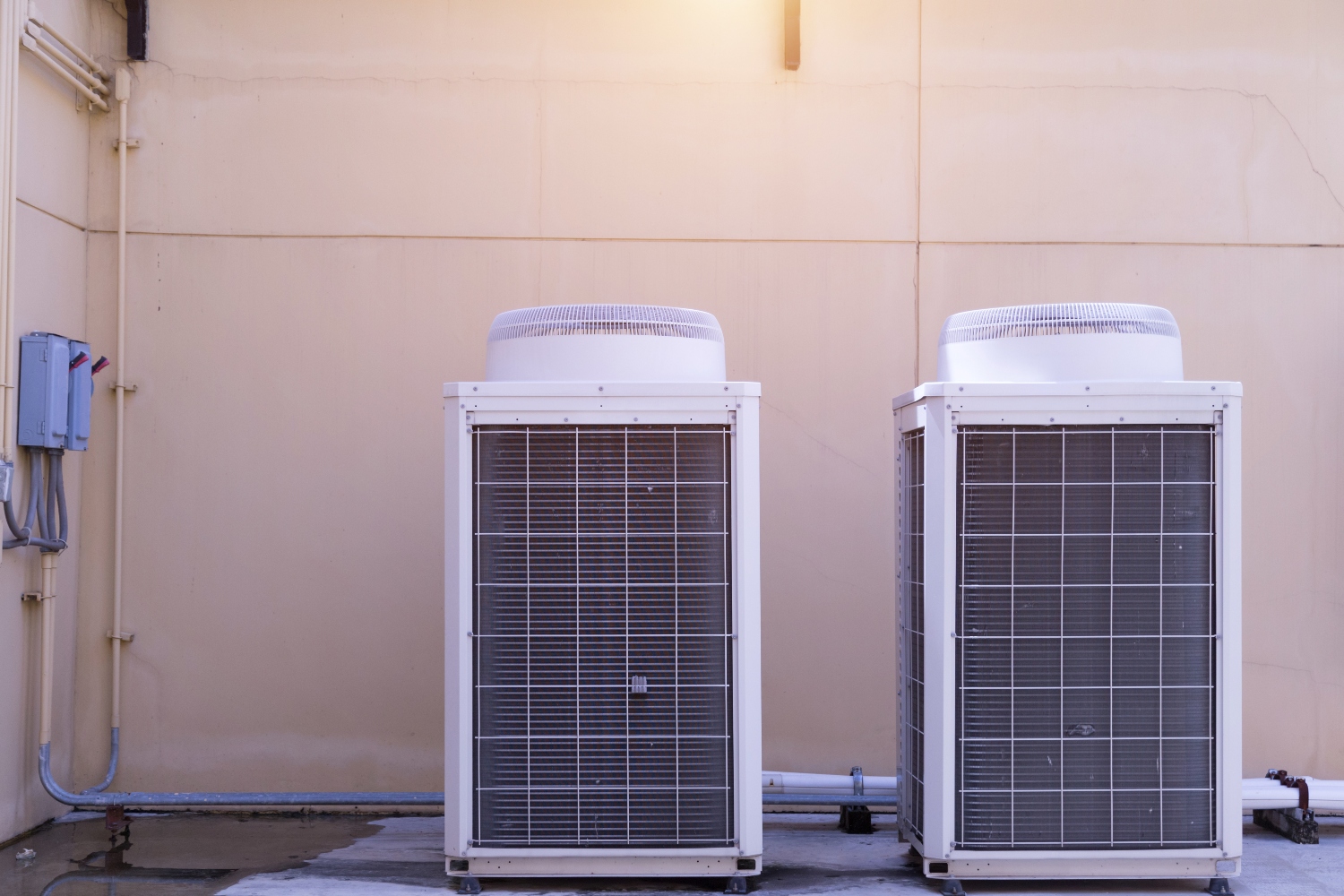
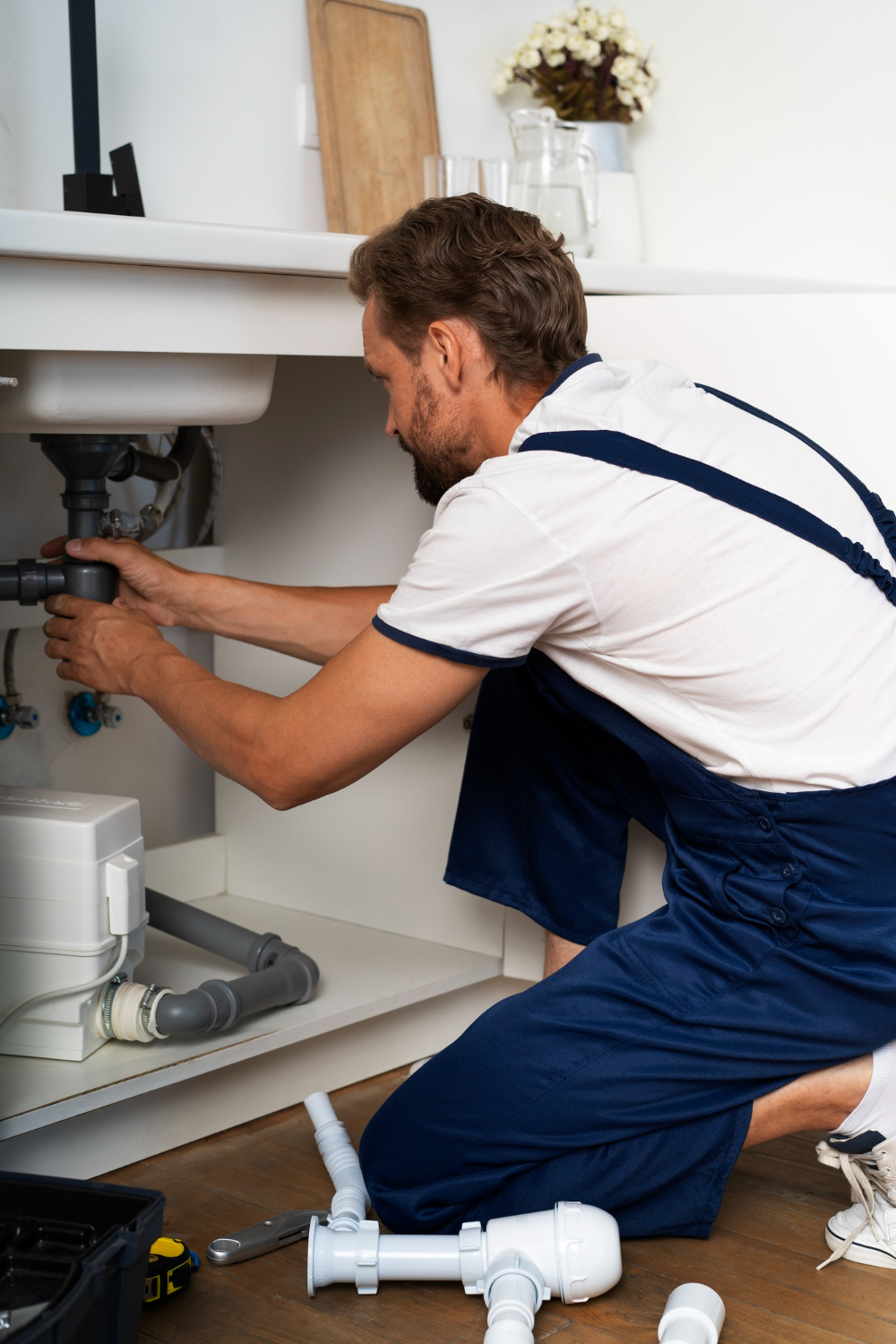
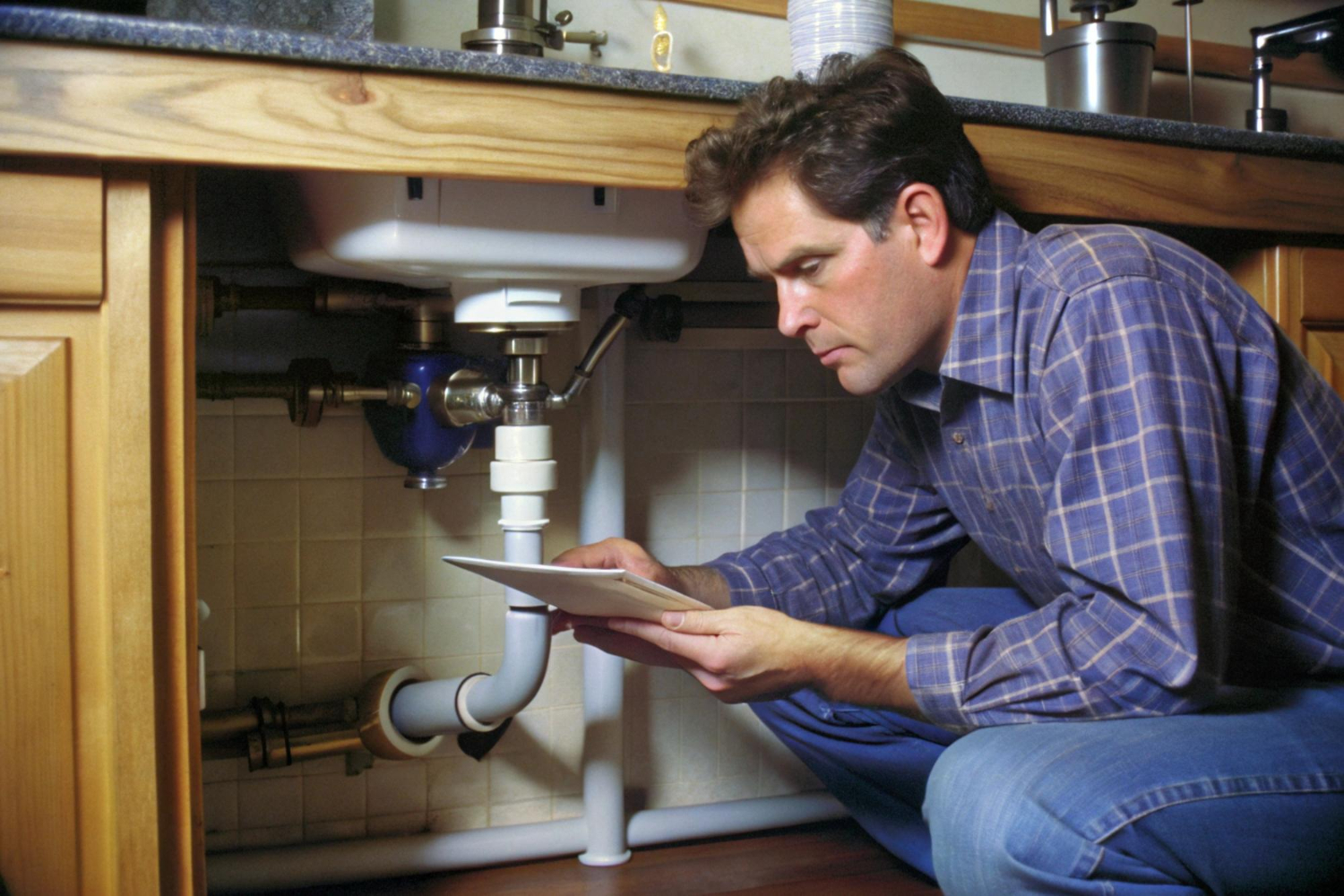
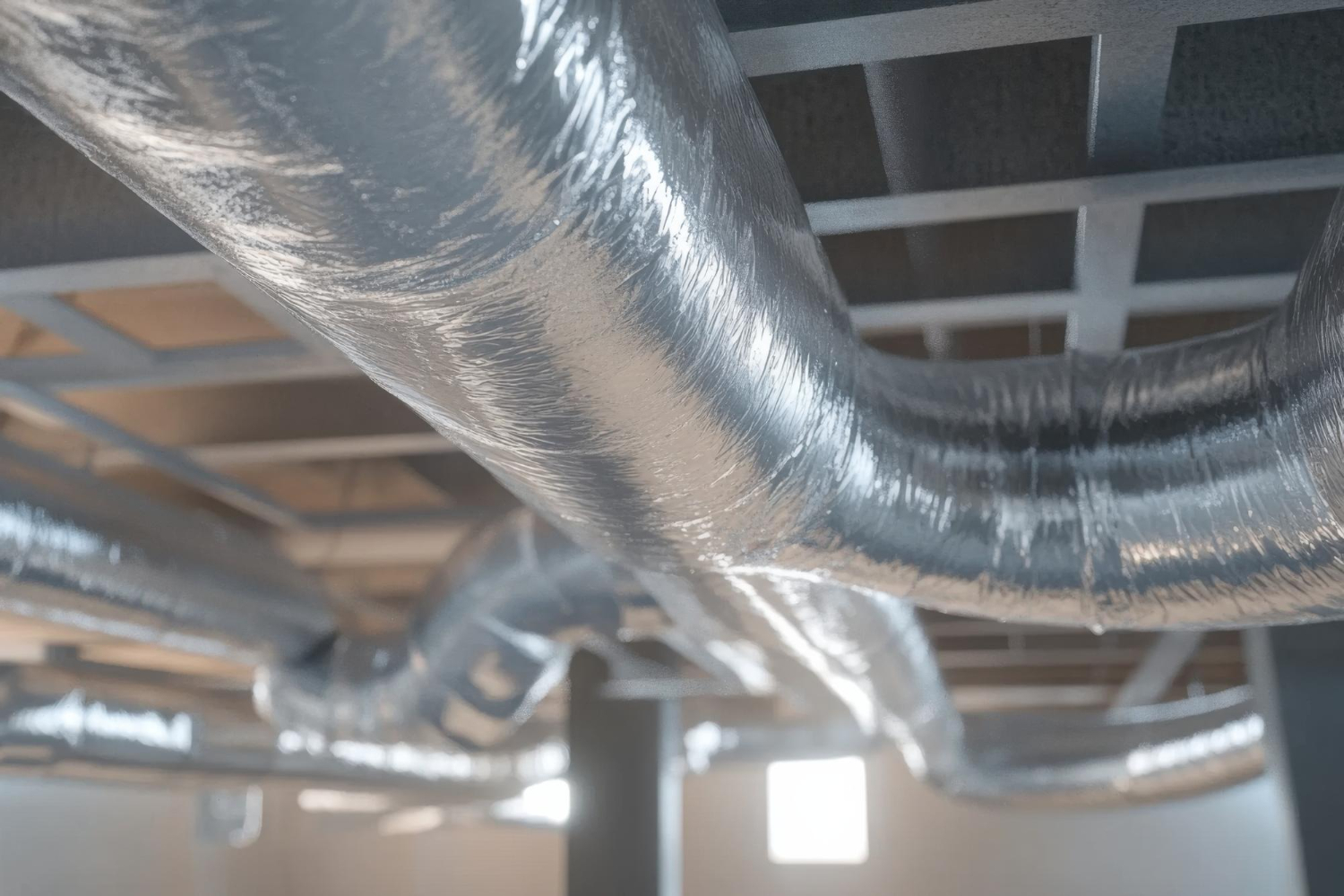
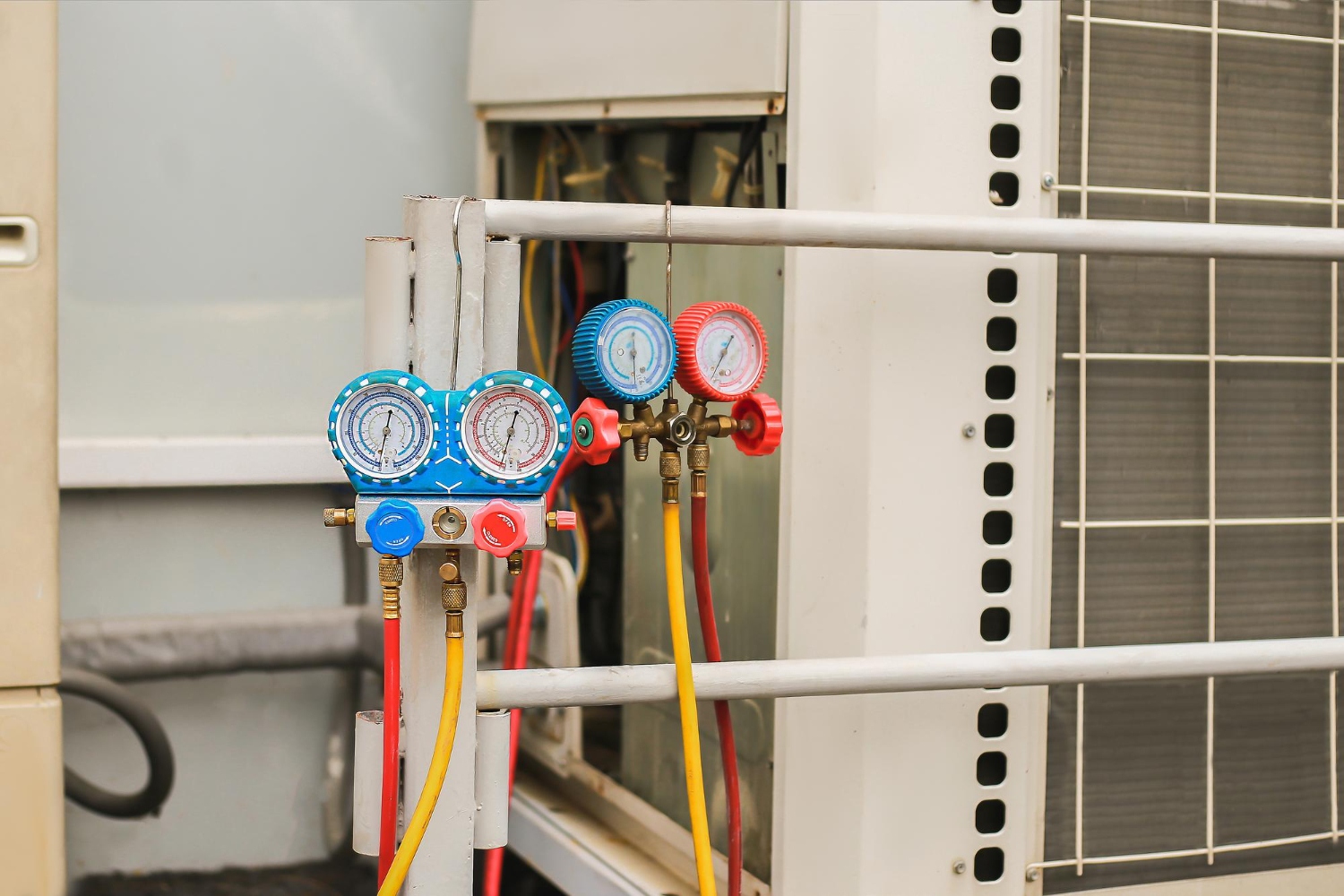
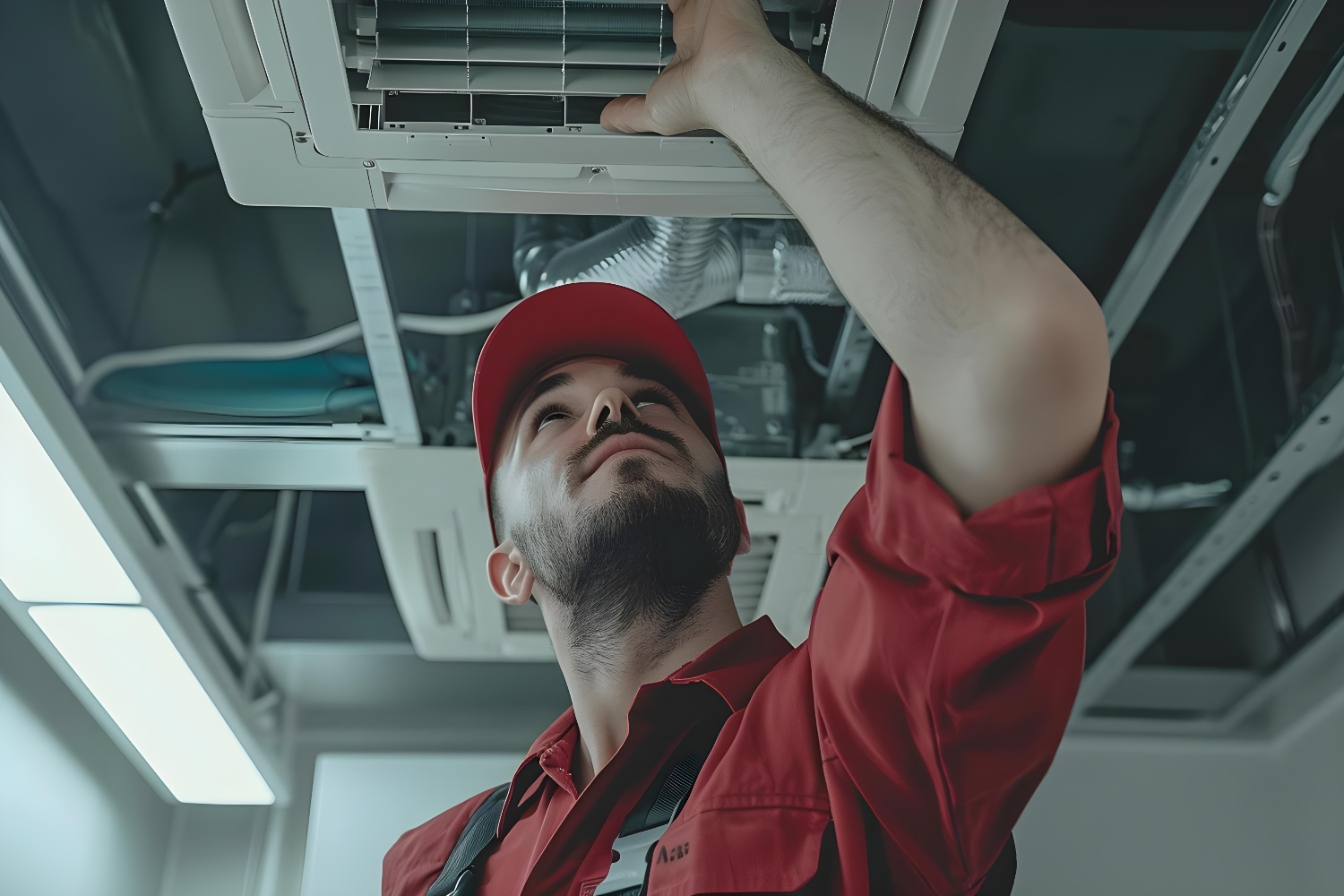
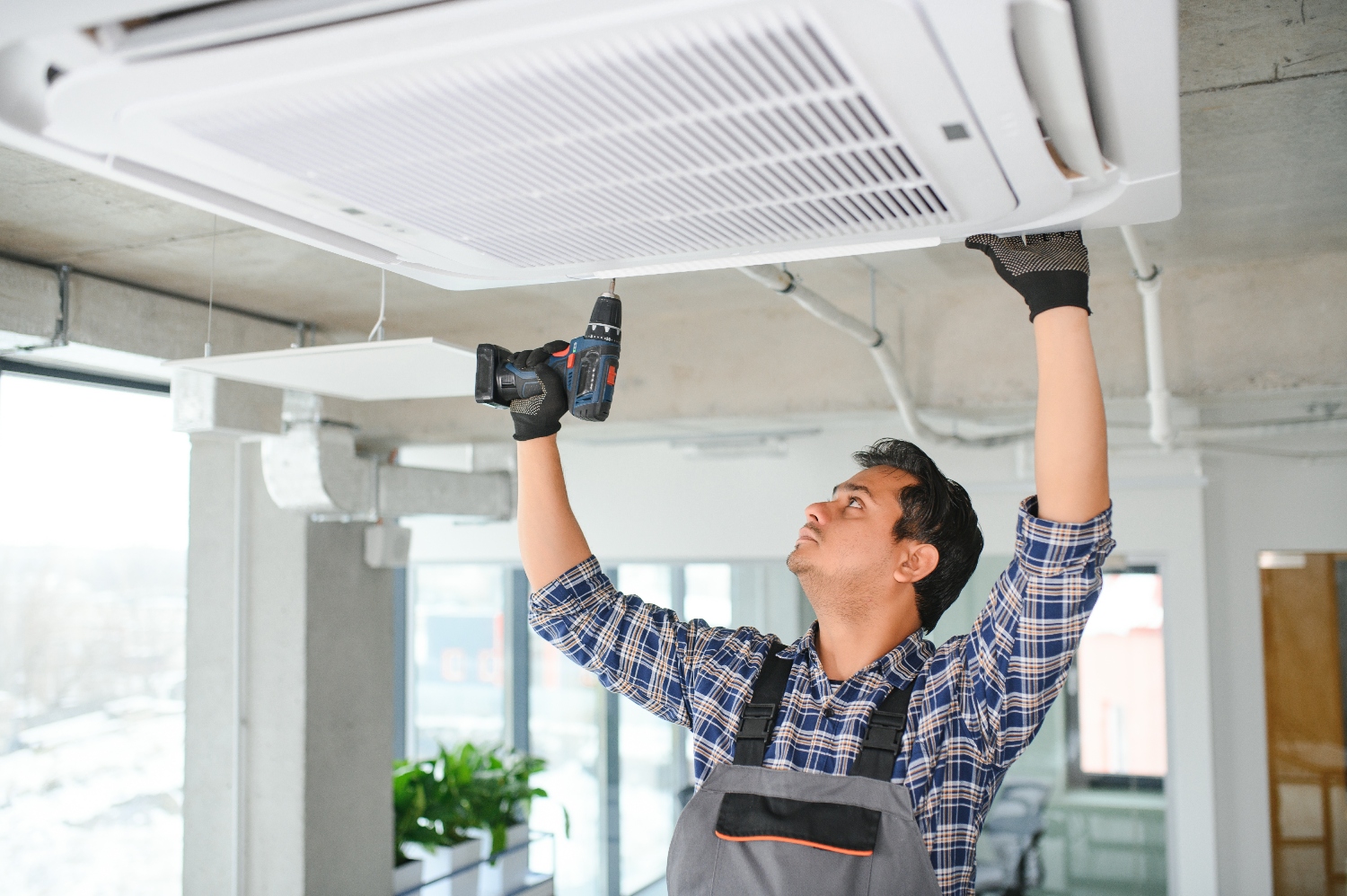
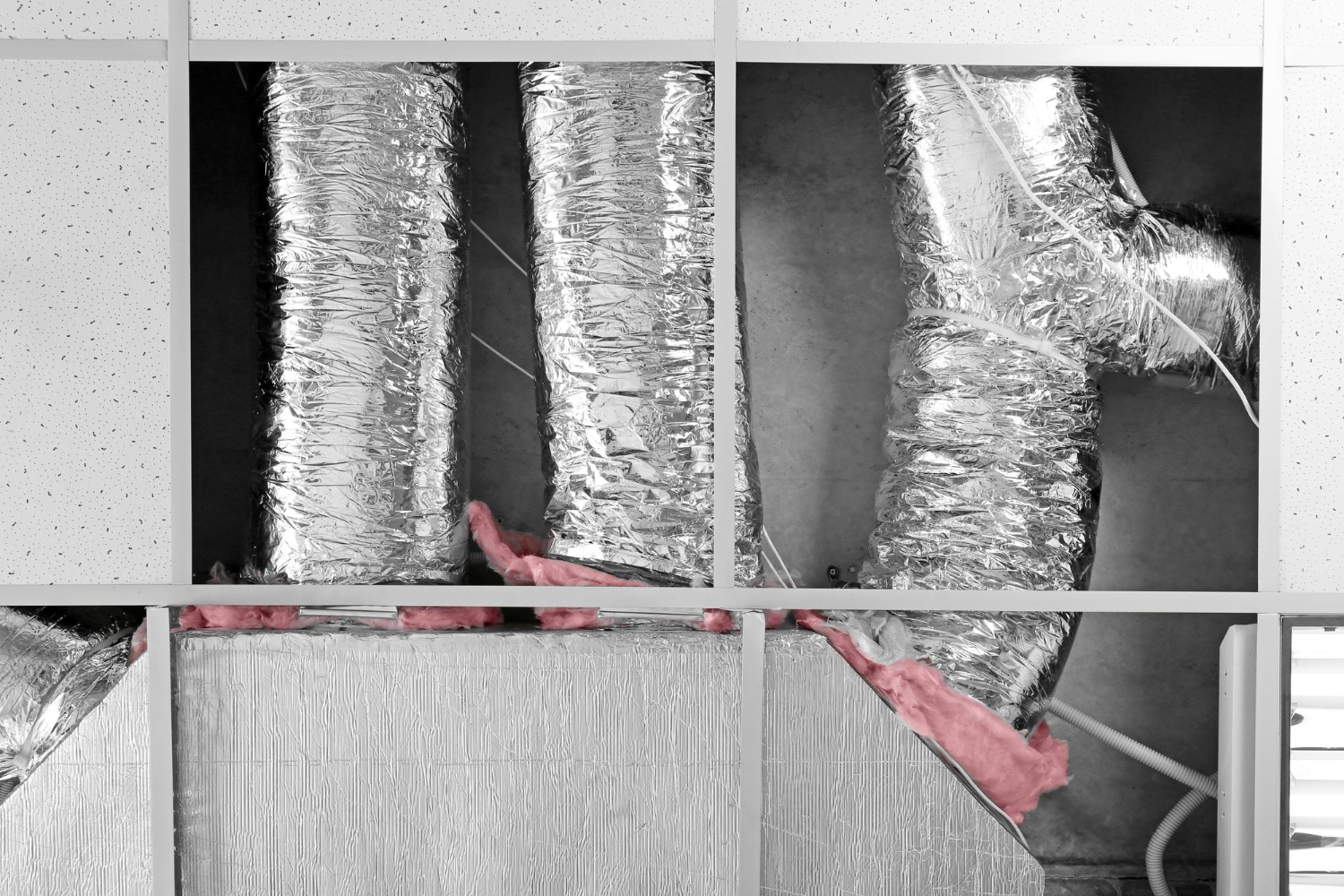































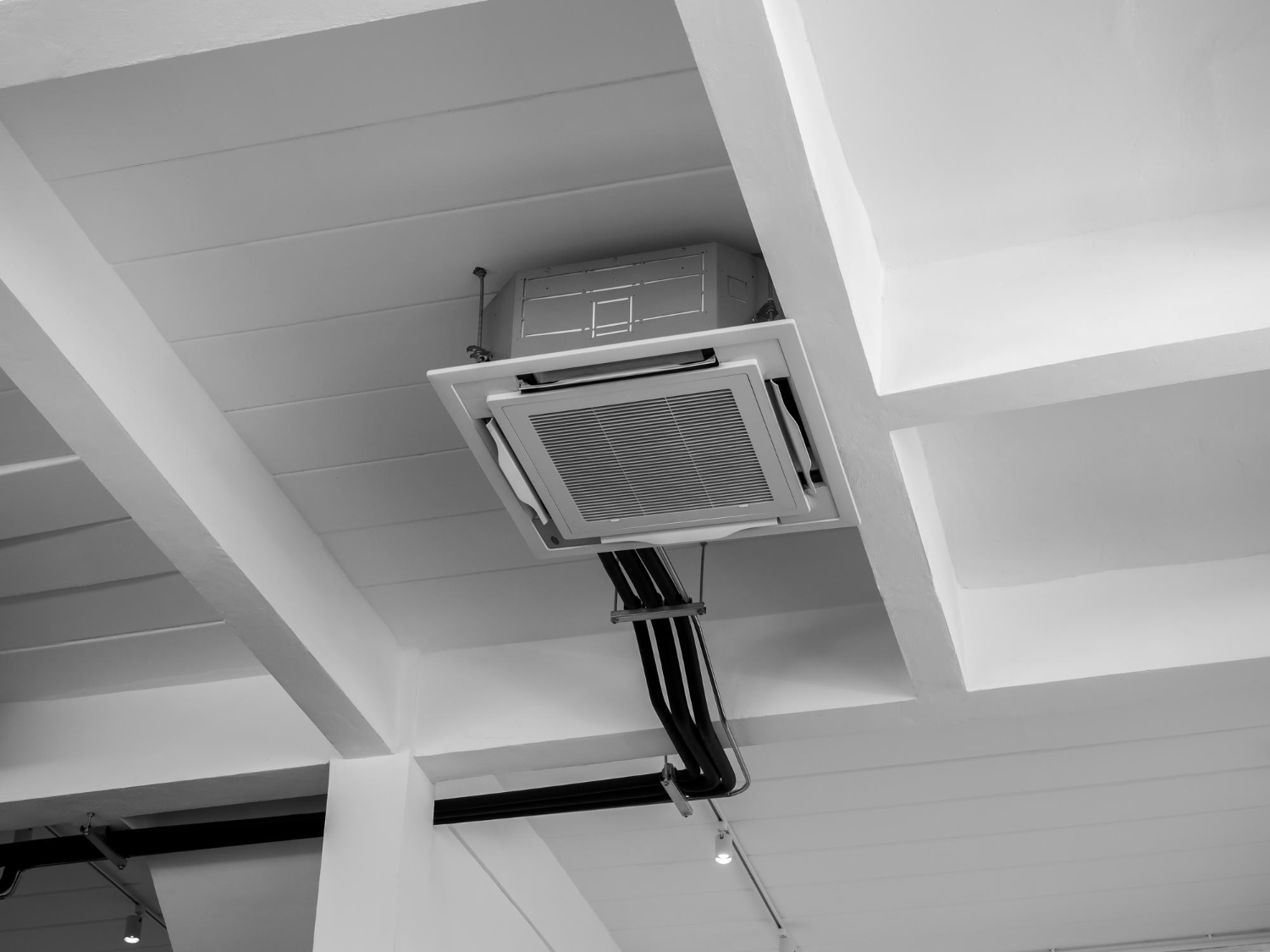




























.jpg)
.jpg)

.jpg)
.jpg)




















